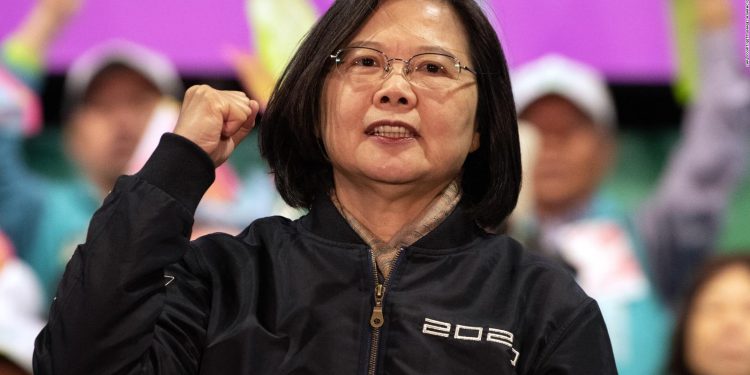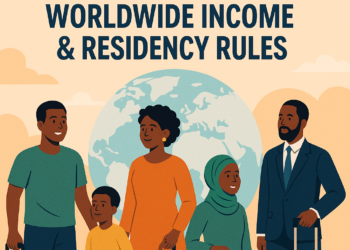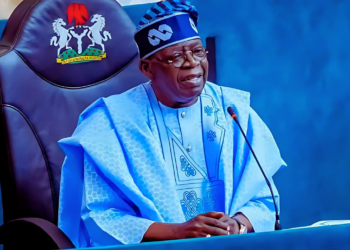As Taiwan’s presidential election draws near, China has unveiled a multifaceted approach to influence the outcome. On one hand, it has proposed a “new path towards integrated development” with Taiwan, aimed at making it easier for Taiwanese citizens to live, study, and work in China.
Simultaneously, China has flexed its military muscles by deploying a significant number of warships near Taiwan’s eastern waters, presenting a stark choice between peaceful reconciliation and military confrontation.
The “Integrated Development” Plan: Released by China’s ruling Communist party’s Central Committee and the State Council, this plan designates Fujian, a coastal province, as a “demonstration zone” for integrated development.
The 21 proposed measures include facilitating Taiwanese residents’ access to social services in Fujian, expanding enrolment of Taiwanese students in local schools, and enhancing industrial cooperation.
Official state media outlet, China Daily, stated that these measures aim to deepen cross-strait development across various sectors and promote the “peaceful reunification of the motherland.”
Mixed Reactions in Taiwan
Taiwan’s media extensively covered the announcement, with particular attention to measures encouraging property investments in Fujian. However, many Taiwanese expressed scepticism, citing concerns about the Chinese property market’s stability.
Terry Hung, a pharmaceutical industry worker in Taipei, voiced his apprehensions in response to Guardian, highlighting the risks of investing in a communist nation and concerns about working in an autocratic country with limited rights.
While some, like a young TV production assistant named Shin, expressed interest in broadening exchanges for students and professionals, others like Ms. Hsieh, a retired teacher, emphasized the significant cultural and political differences between Taiwan and China.
- Military Posturing: In a simultaneous display of military might, China sent a carrier strike group, led by the aircraft carrier Shandong, into the western Pacific Ocean, passing Taiwan’s southern tip. The presence of dozens of warplanes accompanying the strike group signalled a significant military exercise.
Japan’s defence ministry also detected the movement of warships sailing toward the strike group, potentially forming the largest-ever manoeuvres involving a Chinese aircraft carrier. This military activity coincides with China’s “peaceful integration” plan.
- The Upcoming Presidential Election: Taiwan’s next presidential election is scheduled for January, and it is expected that Beijing will seek to influence the outcome. The ruling Democratic Progressive Party (DPP), which advocates Taiwan’s sovereign status, is a target of Beijing’s opposition. However, even opposition parties and a growing majority of Taiwanese citizens reject the prospect of Chinese rule.
Rorry Daniels of the Asia Society Policy Institute points out the contradictory messaging of peaceful integration alongside intensive military exercises, leaving the Taiwanese people in a state of confusion as they weigh economic opportunities against the military presence surrounding their island.
The election’s outcome and Taiwan’s future relationship with China remain uncertain, with Beijing’s multifaceted approach adding complexity to the already delicate cross-strait dynamics.
Conclusion: A Delicate Balancing Act for Taiwan’s Future
China’s multifaceted approach, combining economic incentives and military displays, has cast a shadow of uncertainty over Taiwan’s upcoming presidential election.
The Taiwanese people find themselves at a crossroads, facing a pivotal decision that will determine the course of their future. On one hand, China’s offer of economic integration with the mainland may hold appeal, promising opportunities for prosperity and exchange.
On the other, the ominous presence of a significant military buildup off Taiwan’s shores serves as a stark reminder of the complex geopolitics at play.
As the election draws nearer, Taiwanese citizens must engage in a delicate balancing act. They must weigh the potential economic benefits of closer ties with China against concerns about preserving their democratic values, autonomy, and way of life.
The upcoming election is not merely a choice between political candidates but a referendum on the island’s identity and its stance in the global arena.
In this uncertain landscape, the Taiwanese people’s decisions will shape not only their own destiny but also the future of cross-strait relations, marking a critical chapter in the ongoing saga of Taiwan’s status and its place in the world.
For any enquiries please, email our editorial team at [email protected]. If you liked this story, kindly sign up for Clariform Newsletter, a handpicked selection of stories that helps you clarify things that matter and gives you clear signals about your world, delivered directly to your inbox.
Please subscribe to our YouTube channel, and join thousands of Clariform on Facebook, Twitter and Instagram.












